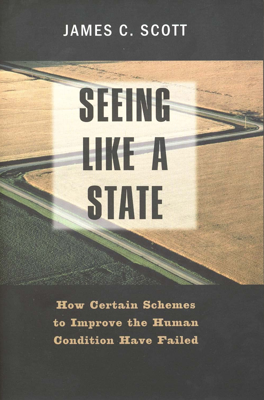Nature and Space
The importance of state-mandated knowledge systems, such as annual censuses and categorization strategies, is highlighted through historical desires for effective resource and population management. These strategies simplify complex realities into achievable, management-friendly systems, supporting state control and resource allocation efficiency. This theme is exemplified in scientific forestry, a discipline that emerged in 18th-century Prussia and Saxony, which used systematic simplification to control and manage forests, later influencing diverse domains like urban planning and agriculture.
The State and Scientific Forestry: A Parable
Scientific forestry in early modern European states, driven by fiscal interests, aimed at maximizing revenue from timber extraction while ignoring other forest resources crucial for local populations. The approach reduced the natural diversity of the forest to manageable units translating complex ecosystems into quantifiable outputs. This extractive perspective, although initially boosting economic efficiency, eventually led to ecological degradation.
The modern state's utilitarian lens often disregards the intricate interdependencies of natural ecosystems and human interactions with the environment, focusing instead on elements that serve immediate economic and administrative ends. This reductionist view extends to urban planning and land use, where diverse land realities are often ignored in favor of simplified administrative maps and figures.
Social Facts, Raw and Cooked
The simplification process required for state administration transforms raw social and ecological data into standardized categories. This helps to impose a manageable order but often at the expense of nuanced understanding. Just as forest simplifications ignored non-timber forest elements, state categorizations of land, populations, and resources frequently overlook local variations and informal arrangements crucial to understanding the actual functioning of societies.
Forging the Tools of Legibility: Popular Measures, State Measures
The transition from locally understood and context-specific measurement systems to standardized, state-imposed units often disrupted established social orders but enhanced state control. These standardized measures, necessary for broader economic integration and state administration, often clashed with local practices but eventually facilitated a more centralized and uniform governance structure.
Land Tenure: Local Practice and Fiscal Shorthand
State-driven cadastral mapping initiatives aimed to simplify complex local land tenure systems into a universal freehold tenure system to enhance tax revenue and administrative convenience. This shift often disregarded local customs and ecological balances, favoring a legible and manageable system from the state's perspective but frequently leading to conflicts and misunderstandings with local populations.
The mapping and standardization of land not only facilitated state taxation and control but also transformed local landscapes and social structures, often aligning them more closely with state models and interests. However, the imposition of these systems also faced resistance from various local stakeholders, who had much to lose from the new arrangements. Despite its intended clarity and fairness, the cadastral system's imposed order often misaligned with the on-the-ground realities, leading to continuous negotiation and adaptation.
In conclusion, these historical and environmental insights underscore the tension between state-driven simplifications for management and control, and the complex realities they seek to govern. As states continue to impose standardized systems for easy governance, the nuances of local practices and the natural environment often challenge these simplified frameworks, calling for a more integrative approach that respects local knowledge and ecological integrity.
